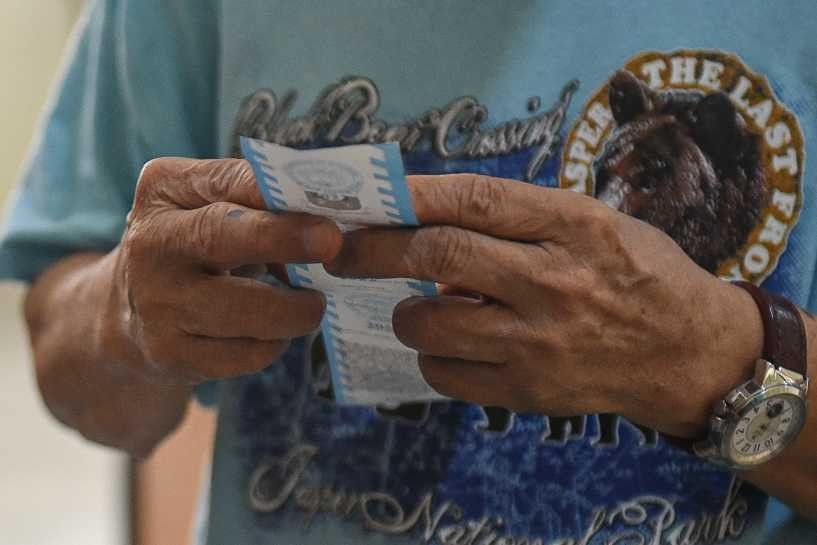'Shock' result still possible despite Marcos' lead in surveys — think tank

MANILA, Philippines — A surprise result is still possible after the May 9 polls despite the outcome of pre-election surveys, although it is the conduct of a clean and honest election, not the winner, that would matter most for investors.
In an e-mailed commentary on Monday, UK-based Pantheon Macroeconomics said there’s a chance that the “relatively small sample size” of pre-election polls did not capture the actual level of public support for each candidate.
That said, a “shock result this time can’t be ruled out,” Miguel Chanco, chief emerging Asia economist at Pantheon, wrote.
Ferdinand “Bongbong” Marcos Jr. maintained his lead over his main rival, Vice President Leni Robredo, in the latest Pulse Asia survey of 2,400 respondents conducted from April 16 to 21, or nearly three weeks before the Election Day.
This, despite the numerous scandals that he faces, which include his absence from debates, an unpaid P203 billion estate tax, his family's ill-gotten wealth, and pending disqualification cases owing to his status as a convicted tax evader.
But some experts pointed out what seemed to be either an overrepresentation or underrepresentation of some sectors and socioeconomic classes in the Pulse Asia surveys, adding that a more inclusive sampling of respondents may show different results. The polling firm nevertheless stood by its method.
READ: Expert: Some sectors not represented in poll surveys
'Clear' winner
Since the start of the campaign period, Robredo’s bid for presidency has gained political momentum. She has won endorsements from former cabinet members of past administrations, civil society groups, religious leaders and retired military officials among others. At the same time, Robredo’s recent rallies have drawn enormous crowds even in her opponents' traditional bailiwicks.
While a Bloomberg poll in March showed Robredo is the market’s preferred candidate, Pantheon’s Chanco said the likely election of the late dictator’s son as the Philippine president shouldn't spook markets.
What matters more for investors, Chanco explained, is that the Election Day proceeds smoothly and the transition to the next administration takes place without a hitch.
“All told, the potential worst-case scenario is political and government gridlock, if the runner-up ends up challenging the legitimacy of the next president,” Chanco said.
‘“A ‘bad” market outcome is an election that doesn’t produce a clear winner, with the presumptive victor then likely to face allegations of electoral misconduct. Remember that no president in modern Philippine history has secured a majority of the electorate’s support,” he added.
Curbing inflation should be top priority
Should Marcos win without any political drama, Chanco said the candidate’s “mostly vague” economic aspirations are "unlikely to matter much" in his first few years in office, as he would likely be busy fixing a pandemic-battered economy.
“We’d even go so far as to say that it doesn’t really matter who takes the helm at Malacanang Palace, as any future administration will be preoccupied with repairing the economic damage caused by the pandemic since 2020, with economic reforms likely to take a back-seat,” Chanco said.
As it is, shoring up the economy to recovery would be the next president’s hardest task. In a separate commentary, Moody’s Analytics said the incoming leader would have to treat inflation as a top economic priority as rising prices could spoil recovery.
Both Marcos and Robredo have floated fiscal support to cushion the impact of inflation, with the former flagging the idea of a fuel subsidy and latter suggesting targeted social aid for the poor.
But as the state grapples with twin deficits and high debts, the Moody’s unit believes the new government might not have the financial capacity to provide such a support to inflation-hit Filipinos. The Bangko Sentral ng Pilipinas would likely take up the cudgels by raising interest rates, it added.
“It may be the central bank that has to do the heavy lifting to soothe inflation,” Moody’s Analytics said.
- Latest
- Trending























